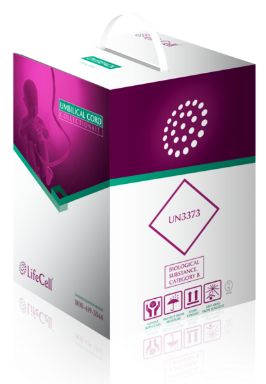Health Check
Types Of HPV Infections- Low Risk & High Risk
4 mins | November 25, 2022


Preserve baby’s precious stem cells, find stem cell match for baby.
babycord (1 year) + StemMatch
Utilize the lifesaving power of your baby’s stem cells and get a chance to find stem cell matches for baby.Get unlimited community registry access for your immediate family members who could be in need of a stem cell transplant
 Sample Type: Umbilical Cord Blood
Sample Type: Umbilical Cord Blood Results: 15 Days (Initial Results) + FREE Annual Updates
Results: 15 Days (Initial Results) + FREE Annual Updates Collection By: Doctor
Collection By: Doctor Parameters Tested: 19 (Cord Blood) + 8 HLA Markers
Parameters Tested: 19 (Cord Blood) + 8 HLA MarkersIt’s not just your baby you’re blessed with but also with what comes attached with it as it could be the lifeline for a loved one who could be in need of stem cells for transplant
With Family Floater; your siblings, their spouses, as well as their children can enjoy the life-saving benefits of community banking and get access to the largest registry of Indian origin stem cells without needing to have a baby themselves.


Order Online
Enroll for GenomeScope Newborn test along with babycord or book a standalone test online.

Sample Collection
A trained paramedic collects the blood sample either via heel-prick or through the cord blood soon after the baby’s birth.

Receive Digital Results
Within 21 days, you’ll receive the results and useful insights on your personalised dashboard.

Follow Up


Customised Dashboard Experience:
Along with an interactive, user-friendly experience, we also offer you the complete screening test insight in the form of smart reports.

SMART Reports
Empowering you with the right information, our SMART reports are:

Recommendations from Genetic Counselors
We understand the importance of receiving expert advice at the right time. That’s why we don’t just provide your test results and leave it at that. Our in-house team of genetic counselors interprets the out-of-range results and provides you with tailored advice.

NABL & CAP Certified
Our labs are NABL and CAP certified. This means they have to meet high testing standards and submit themselves to regular inspections.

Privacy & Confidentiality
Your privacy is our priority. We use state-of-the-art technology to ensure your data is stored securely, and under no circumstance do we ever sell your data.

Certified Results
All our test reports are reviewed & approved by board-certified geneticists and genetic counselors.
LifeCell Emerges As a Lifesaver - Dr. Junagade's Testimonial
A Young Family Finds Confidence with LifeCell
Know what Dr. Bhat has to say about the power of Cord Blood Banking!
A Family from Punjab Makes the Best Decision with LifeCell
Wish To Know More?
Signs and symptoms of genetic conditions can be visible from birth or may develop over time. And when these symptoms appear, it can take an average of 2 to 3 misdiagnoses, 8 physicians, and between 5.6 to 7.6 years before arriving at an accurate diagnosis. This misdiagnosis or delay in identifying a condition can lead to severe complications, including premature death and lifelong disability.
The GenomeScope Newborn test identifies such genetic conditions before any signs or symptoms manifest. Insights from the test can enable timely intervention that paves the way for proactive healthcare decisions as well as an informed future.
A genetic test is the only possible way to detect the risk of your baby suffering from a genetic condition. These statistics throw light on the fact that rare genetic conditions are becoming more common globally, including in India.
The term newborn screening refers to screening newborns for treatable inherited conditions soon after birth. It is a biochemical screening test that helps to screen babies for close to 50 severe-but-treatable conditions. It requires additional confirmation via genetics, which may require an extra sample and more time, causing interim anxiety.
Also, missed diagnosis may lead to overall increased poorer outcomes. GenomeScope Newborn, on the other hand, is an advanced genomic test that offers a broader view of conditions that may not be identifiable by blood biochemistry.
Rare genetic conditions have become a common public health concern in India, implying the need for effective and adequate genetic testing services. Taking this into account, in 2019, the Department of Biotechnology (DBT) launched the UMMID Initiative - The Unique Methods of Management and Treatment of Inherited Disorders. The UMMID initiative has a clear goal to establish NIDAN (National Inherited Diseases Administration) Kendras across Govt. hospitals in the country that will provide services like counseling, prenatal testing, diagnosis, and management for rare genetic conditions.